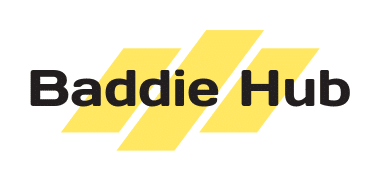How to Get Started with Options Trading Professionally

Should you be drawn into the realm of options trading, you could be thinking, how do you become an options trader? For both people and businesses, options trading presents chances to create revenue, hedge risk, and profit on market swings. Starting, nevertheless, calls for a strong basis in trade methods, risk management, and market analysis. Whether your goal is to work for a financial company or trade on your own, professional options trading calls for dedication, knowledge, and expertise.
Understanding the Basics of Options Trading
Financial contracts known as trading options allow traders the right but not the duty to purchase or sell an asset at a set price before a designated expiration date. Call options—which let traders purchase an asset—and put options—which let traders sell an asset—are the two main varieties of options available. Unlike conventional stock trading, options give traders freedom in trading techniques so they may benefit in bullish, negative, and even sideways markets.
Understanding fundamental ideas like strike prices, expiration dates, intrinsic value, and time decay is crucial even before entering into options trading. Traders should also become acquainted with the Black-Scholes model, which aids in the fair value of an option estimate.
Gaining the Necessary Education and Skills
Professional options trading calls for a thorough grasp of risk management, technical analysis, and financial markets. Before risking actual money, many successful traders first complete courses, study books, and practice with paper trading accounts. Among the finest tools available for learning options trading are:
- Books including The Options Playbook by Brian Overby and Lawrence McMillan’s Options as a Strategic Investment
- Online courses are available from sites including Investopedia, Udemy, or the Options Industry Council (OIC).
- Free instructional materials are offered by brokers including Interactive Brokers, Charles Schwab, and TD Ameritrade.
Technical analysis techniques should also help aspirant professional traders spot market patterns, support, and resistance levels, and entrance and exit locations. Furthermore, knowing macroeconomic patterns and basic analysis will help one have an advantage while deciding what to trade.
Choosing the Right Trading Platform and Brokerage
A professional options trader needs a trustworthy brokerage platform with access to many option markets, sophisticated trading tools, and reasonable commissions. Popular sites include Interactive Brokers, Tastytrade, and Thinkorswim by TD Ameritrade offer sophisticated charting tools, real-time data, and risk analysis capabilities. When selecting a broker, take margin needs, trade execution speed, and available educational materials into account.
Developing a Trading Strategy and Risk Management Plan
Starting the market without a well-defined plan is one of the biggest errors beginning traders make. To maximize gains and control risk, professional traders mix covered calls, iron condors, straddles, and credit spreads. Long-term success depends on creating a strategy including position sizing, stop-loss orders, and portfolio diversification.
Professional options trading depends much on risk control. Options are leveraged contracts, hence if transactions deviate from expectations, it is simple to lose big amounts of money. Using a stop-loss strategy and limiting exposure by risking just a tiny portion of capital per trade will help to avoid major losses.
The road starts with education, experience, and disciplined execution; if you’re thinking, how do you become an options trader? Professional options trading will start you on the road using mastery of market analysis, choice of the appropriate brokerage, and application of successful risk management techniques. In the ever-changing world of options trading, developing expertise and always improving your technique will raise your chances of long-term success whether trading individually or inside a financial institution.




